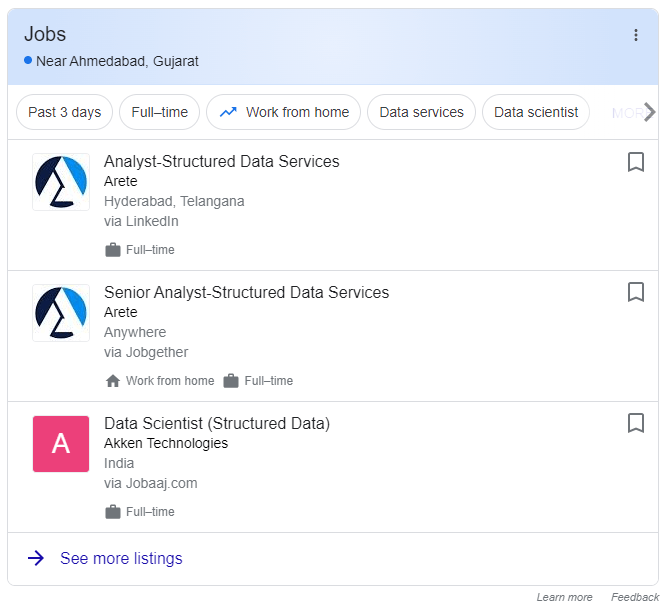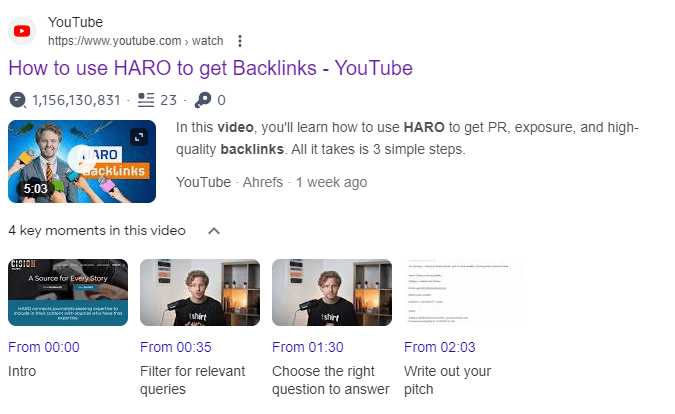
The Complete Guide to Leveraging Structured Data for Higher SEO Rankings
Implementing structured data markup is one of the biggest optimization opportunities available today. Structured data enables your pages to rank for rich results and be eligible for featured snippets.
In this comprehensive guide, we’ll cover what structured data is, types of rich results it powers, schema basics, implementation best practices, and tips for ongoing schema optimization.
Let’s dive in and unlock the immense SEO potential of structured markup.
What is Structured Data and Why Does it Matter for SEO?
Structured data refers to code you can add to your pages to clearly label aspects like:
- People
- Organizations
- Events
- Products
- Ratings
- Recipes
- Videos
and much more.
Search engines like Google use this structured data to better understand content, display rich search features, and connect users with relevant pages.
Key benefits of structured data markup include:
- Rich result eligibility– Like rich snippets, knowledge panels etc.
- Expanded listings– More site content shown directly in SERPs
- Higher CTR– Rich results standout and earn more clicks
- Authoritativeness– Structured data signals high-quality content
- Voice search optimization– Helps spoken queries understand content
- Qualify for rankings boosts– Like the Knowledge Graph entity boost
Without structured data, pages miss out on these opportunities and enhanced presentation in results.
Types of Rich Results Powered by Structured Data
Here are examples of rich result presentations enabled by schema markup:
Rich Snippets

Snippets displaying extended details like ratings, events, recipes etc. directly in search listings
Knowledge Panels

Side panels providing deeper entity information and links
Sitelinks

Supplementary quick site links showcased under listings
Product Listings

Enhanced product details and carousels for eCommerce sites
Job Postings

Highlights for open job listings like salary and skills
Video Markup

Previews with thumbnails and timestamps for video results
The only way search engines can generate these rich experiences across different content types is via schema markup.
Now let’s break down the basics of implementing structured data.
Structured Data Basics – How to Implement Schema Markup
There are a few key steps for adding schema markup:
1. Choose the Right Schema Type
Review Google’s schema documentation to pick the specific schema – like JobPosting, Event, Recipe – that matches your content type.
2. Identify Required and Recommended Properties
Each schema has specific required and recommended fields you should include. These ensure rich results.
3. Add Schema Code in JSON-LD Format
Google strongly recommends JSON-LD as the structured data format. The code can go in page <head> or HTML body.
4. Test Implementation in Google Structured Data Tool
Use Google’s testing tool to validate your schema shows up correctly and has no errors. Refine as needed.
5. Deploy Across Site Pages
Roll out properly formatted schema across all relevant pages. The more structured data, the better.
Taking the time to properly implement schema opens up content to special search features and visibility users love.
Structured Data Implementation Best Practices
Here are some key best practices to follow as you integrate schema markup:
Stick to Trusted Schema Types
Only use schema types from Google’s official documentation. Avoid questionable 3rd party schemas that search engines may not recognize.
Use Schema Generator Tools
Free tools like Schema Creator automate schema generation for common types, saving manual work and formatting errors.
Audit Competitor Implementation
Research how leading competitors are leveraging schema to identify additional opportunities to stand out.
Follow Google Guidelines Closely
Schema is only effective when properly formatted. Follow Google’s guidelines closely for each type to avoid errors.
Avoid Duplicating Existing Content
Don’t repeat the same content in schema that already appears on the page. It should supplement content with extra details.
Watch for Over-Optimization Penalties
While more schema is better, blatant overuse will raise spam flags. Follow best practices for seamless implementation.
Validate Across Devices
Double check that structured data renders correctly across desktop and mobile. Mobile usability issues will limit potential.
Continuously refining schema implementation ensures your pages aren’t leaving opportunity on the table.
Advanced Tips for Ongoing Structured Data Optimization
To take schema impact to the next level:
Monitor Search Appearance
Check that pages with schema actually generate rich results in practice in live Google searches. Continuously test and iteratively improve.
Measure Traffic Lift
Compare search referral traffic volumes before and after implementing schema to quantify real world impact.
Expand Use Across All Relevant Pages
Maximize scale by adding schema markup to all applicable pages, not just a handful. But avoid inappropriate use just for volume.
Create Authority Focused Schema’s
For personal name pages, emphasize credentials that establish expertise using types like Person and Author.
Develop Custom Schema’s When Needed
If you can’t find an exact schema match, Google supports submitting custom schema’s for review. Expand possibilities.
Layer in Aggregate Rating Markup
Aggregate Rating snippets drive clicks. Find creative ways to incorporate ratings for content or businesses.
Balance SEO and User Experience
Don’t overload pages with schema. Ensure it feels like a natural supplement to page content.
Stay on Top of Schema Updates
Google frequently adds new schema’s and updates best practices. Stay current through their developer docs and updates.
Continued schema optimization will expand visibility and search clicks over time as you build authority.
FAQs Around Structured Data Markup
Let’s review some common structured data questions:
Does schema directly influence search rankings?
Should I use Microdata or JSON-LD schema?
When should I avoid schema markup?
Can overusing schema get my site penalized?
How much schema is needed to benefit SEO?
How long does it take for new schema to impact search performance?
What's better for SEO - more content or more schema markup?
Wrapping Up
Structured data enhances how search engines present your pages in results and provide users the right information. For SEO, it enables content to stand out while signaling authority.
Use this comprehensive guide to audit your current site’s schema markup implementation. Identify key pages and content types that can benefit from added structured data.
Implementing schema does require diligence. But the long-term visibility payoffs make the investment extremely worthwhile. Schema can elevate your entire SEO content strategy.
Want help executing an advanced structured data optimization initiative? Our technical SEO team has the schema expertise and tools to seamlessly enhance your content across all major search engines. Contact us today to learn more.




